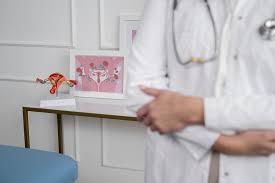Bartholin's glands are glands located in the walls of the vagina. They secrete a fluid that is necessary for maintaining moisture. Blockage of the ducts of these glands leads to the formation of seals or cysts. These are usually benign formations. A fully developed cyst may require marsupialization or removal of the gland.
What causes Bartholin's gland cysts?
Doctors believe that the main cause of cysts is obstruction of the Bartholin's glands. The exact mechanism of formation is unknown, but it can be the result of any damage to the glands or chronic infections, such as sexually transmitted diseases. Vaginal cysts can become infected and form an abscess. Common bacteria that cause cysts include Escherichia coli, N.gonorrhoeae, chlamydia, and others.
What are the signs and complications?
Cysts can initially be small and then increase in size (up to the size of a golf ball). Initially, there is a slight increase in swelling or tightness around the entrance to the vagina. It may be painful to the touch, but more often it is painless. Later, the cysts can become infected and become painful. One of the most common complications of Bartholin gland cysts is their recurrence. The cyst often recurs even after adequate treatment. Infected cells from the cyst can enter the bloodstream, causing distant infections of other organs, which can even lead to sepsis.
How to treat?
It makes sense to contact a gynecologist at the Bogolyuby Medical Center if the swelling does not decrease after 2-3 days of self-care, for example, applying warm compresses. Treatment includes surgical drainage and antibiotic therapy if the cyst is infected or if tests reveal the presence of a sexually transmitted infection. After the surgical procedure, a catheter may be installed to improve drainage for a few days and prevent recurrence. Although rare, for persistent cysts that do not respond effectively to the above treatments, your doctor may recommend surgery to remove the Bartholin gland.
How to help at home?
There are several ways to treat a Bartholin gland cyst at home before going to the hospital. Pay attention to any recent abnormal growths or changes and never try to squeeze or puncture the cyst, as this can lead to serious complications. Take a warm bath or sitz bath. Taking a sitz bath at least four times a day for at least 15 minutes helps reduce swelling, relieve pain, and reduce the risk of spreading infection. You can also add a few drops of Betadine solution to the warm water, which can help control the spread of infection. Take mild painkillers. Medications such as ibuprofen, naproxen, and acetaminophen can help reduce fever, pain, and discomfort.
How long does a Bartholin gland cyst last?
Some Bartholin's cysts can last for weeks or months before bursting and opening. When the cyst becomes infected, the swelling or lump increases, which can be very painful. Bartholin's cysts are not sexually transmitted diseases, but they can be caused by certain sexually transmitted infections, such as gonorrhea, chlamydia, and others. It is important to note that although the exact cause of blocked ducts is not yet known, a Bartholin's cyst can also be contracted outside of sex.


















